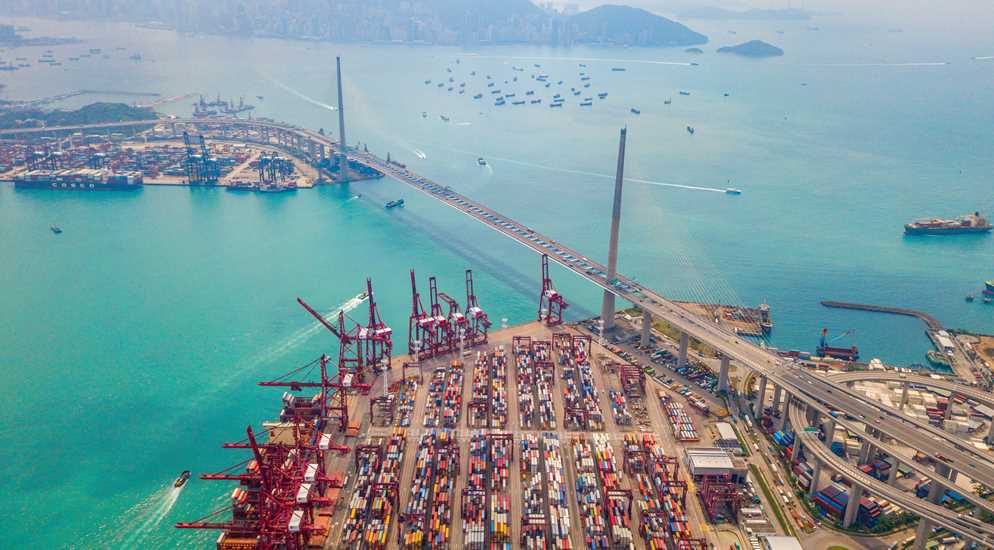
Quality and safety throughout
Sustainability and corporate social responsibility in the supply chain
Sustainability and corporate social responsibility in the supply chain covers suppliers’ relationships with ethical guidelines, human rights, workers’ rights, anti-corruption, the climate and the environment. Systematic and good collaboration on corporate social responsibility in the supply chain is part of our strategy for responsible business operations. This contributes to a reduction in risk and increase in quality in the value chain.
Our ambitions
We have set targets and indicators to support our ambitions and to ensure compliance and follow-up.
Our ambition is to contribute to a socially responsible supply chain by supporting sustainable job creation and the reduction of climate emissions and environmental pollution.
- We will contribute to a responsible supply chain, with particular emphasis on human rights, diversity and equality, health and safety, as well as labour rights and working conditions.
- We will ensure that our suppliers act in accordance with our principles for supplier behaviour through our processes, contracts and audits.
- We will work with our strategic suppliers to meet high environmental and sustainable standards, including climate emission reductions.
Indicators for 2021
KONGSBERG’s “Supplier conduct principles” (SCP) must be integrated in supplier agreements.
Indicators for 2021
Conduct risk-monitoring of suppliers, including audits in accordance with internal processes, as well as training.
Indicators for 2021
Collaborate with our strategic suppliers to reduce climate emissions.
Our approach to sustainability and Corporate Social Responsibility in the supply chain
Value creation through our supply chain
KONGSBERG has more than 8,500 suppliers globally, with about half of them being Norwegian. This means we help to safeguard jobs and build competence, not only where we have proprietary operations, but also to a large extent where we use suppliers. The suppliers are an important part of our value creation, at the same time as we are important and, in many cases, essential to their value creation. We want to work with suppliers that share our values and requirements regarding responsible business conduct. This is specified in our “Supplier Conduct Principles”, which is part of our supplier agreements.
Our challenges
We see it as our ethical responsibility to ensure that the entire value chain relating to our products satisfies our requirements for sustainability and corporate social responsibility, while the legal responsibility rests with the individual supplier. Read more about our approach to the Norwegian Transparency Act in the chapter on human rights.
Making sure that all subcontractors throughout the value chain comply with our requirements is our main challenge. We follow up our responsibility through clear requirements in our agreements with suppliers as well as risk-based follow-up and audits. Our suppliers are obliged to require the same standards of their subcontractors.

KONGSBERG has a wide range of subcontractors with whom we work to create the very best technological products.
COVID-19 and the supply chain
Throughout the COVID-19 pandemic, we have maintained deliveries to our customers through active management of the supply chain and logistics across our businesses. We have worked throughout the value chain to minimise disruption. Priorities for ESG, HSE and sustainability were maintained through procurement and purchasing processes, supported by our supplier audit programme and the launch of a new sustainability portal for suppliers.
Our risk profile and risk assessments
Our 100 largest suppliers account for approximately 87 (64) per cent of our total purchases of goods and services. Of our 100 largest suppliers overall, Norwegian suppliers make up approximately 50 (44) per cent, and European (including Norwegian) suppliers a total of 73 (77) per cent.
Our business areas have established processes and systems for the risk evaluation of suppliers. We divide our overall supplier portfolio into different risk classes, with assessment factors including purchase volumes, country and the extent to which we depend on the goods and services we purchase. In general, we consider that our greatest potential risks in the supply chain are related to corruption and human rights.
The risk assessment covers existing and new suppliers and includes the assessment of environmental conditions, human rights and employee rights, HSE, business ethics and anti-corruption (ESG). We have established guidelines and processes for the preparation of due-diligence assessments, which enable us to detect undesirable situations at an early stage and take necessary measures, which also include the termination of contractual relations. Based on the result of the initial risk assessment, we follow up with the supplier with additional assessments and measures, including audits. Suppliers who, due to initial risk assessments, were monitored more closely in 2021 accounted for approximately 20 (15) per cent of our total supplier portfolio. All issues identified as high risk were clarified and concluded within the given deadlines.
Our programme of supplier audits and corporate social responsibility declarations has continued as far as possible during the pandemic, with the completion of “desktop” audits where travel was not possible. In 2021, a total of 111 audits of our suppliers were carried out, including a module for ESG. If necessary, we perform extended audits with a special focus on ESG. In 2021, five such audits were carried out – fewer than planned due to the COVID-19 situation.